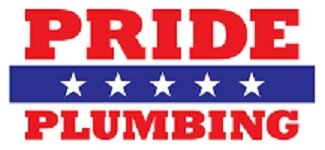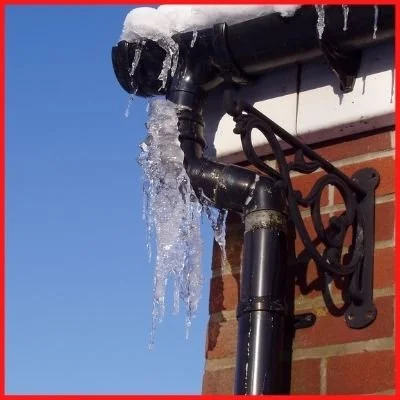Protecting Your Home from Frozen Pipes
What To Do When Cold Weather Strikes
Introduction
It’s cold in Rochester NY, and temperatures have been dropping quickly! The weather can have negative effects on your plumbing systems. Neglecting your plumbing during the winter months may lead to frozen pipes and disastrous results. Frozen water in pipes creates excess pressure that ultimately causes plumbing lines to burst. If this happens, you’d need to call your plumbing contractors for emergency plumbing service, and no one wants that kind of stress!
Water leaking from compromised piping cannot only damage your home but can also create large water bills in a matter of minutes. If not repaired quickly, water leaks may also lead to mold issues that can damage walls, floors and ceilings as well as your family’s health. We want to help you take preventative measures, which is why we are going to tell you how to be proactive and learn how to protect your home from frozen pipes.
Preventing Frozen Pipes
The only way to prevent water from freezing in your plumbing system is to take proactive measures and get your pipes ready for winter. Before the cold temperatures come, a little preparation will go a long way in protecting your pipes from freezing conditions. Follow these steps to prevent any cold weather plumbing issues:
Locate your main water valve. Knowing the location of your valve and how to operate it will help you shut off water if pipes freeze or leaks occur. Usually, this valve is in the basement or utility area of the house. Learn more about main water shut off valves and other valves that can save you in a plumbing emergency.
Understand where potential problem areas lie. Exposed piping in crawl spaces, attics, ceilings or outside walls must be wrapped and protected before cold weather sets in. If they are out in the open, they are more susceptible to colder temperatures.
Seal areas of the home where gaps allow cold air to come in contact with piping. In severe cold weather and winds, small gaps allow cold air to circulate around pipes and freeze them.
Top 5 Things to Do When Cold Weather Strikes
When weather stations forecast freezing temperatures, it is vital to protect your plumbing, especially if you have not previously taken steps to winterize your pipes. Follow these tips to protect your home.
Protect Your Water Pipes
When we think of plumbing, we generally think of the inside of our house. However, it’s important to remember our outdoor plumbing fixtures as well. To protect your outdoor plumbing, disconnect any hoses and shut off the water to your outdoor faucets. Make sure to drain the line and insulate the hose bib! There are a few ways to do this, including installing outdoor faucet covers, using a foam insulation cover, or if you don’t have either of those, you can use a towel and a rubber band and either a trash bag or large ziplock bag. Once you wrap your outdoor hose bib in a thick towel, put a trash bag or big ziplock bag over it for waterproofing purposes, and then put another heavy duty rubber band over the bag.
Add Insulation
To make sure your pipes don’t freeze, add insulation. To thoroughly protect your pipes, insulate your exterior walls, crawl space, basement, attic, and the pipes themselves.
Seal Holes and Cracks
Cold air can sneak its way into the small holes and cracks in our houses, even where cable wires or phone lines enter the home, air can get into. Also, it’s important to seal up spaces where heat can escape toward. You can insulate with simple spray foam and weather stripping foam insulation or caulking remedies.
Keep Garage Doors Shut
In order to keep cold air out, don’t keep your garage open for a long period of time. This will protect plumbing in your garage and for the pipes in the walls in between the house and garage.
Have the Water Shutoff Accessible
Along with knowing where the water shutoff is, it’s also important to keep the water shutoff accessible. We know that sometimes the basement can be used to store miscellaneous items, but it’s important to arrange the basement with easy access to your water shut off in case of an emergency.
Another step that should always be taken is to trickle cold and hot water so that it runs through the pipes. Seal off crawl spaces and attics to keep warmth in, and run your home’s heater to keep the house warm.
When Frozen Pipes Happen
Homeowners that winterize their pipes and take precautions to protect plumbing from freezing conditions may still experience frozen pipes. The first sign that indicates frozen water in the pipes is when there is a reduced to no flow to fixtures. When the water stops flowing from faucets completely, the best action to take is to turn off the main water valve while leaving faucets open. Never use open flame to thaw pipes and do not use electric dryers or heaters directly on pipes since leaking water may cause electrocution. When water begins flowing again, turn off the main water valve and open faucets in the lowest part of your home, usually the basement or first floor.
Contacting a plumber when pipes freeze is not usually necessary. Warmer temperatures and a little patience will usually result in thawed plumbing. If frozen pipes do burst in your home, then you will likely need to call Pride Plumbing of Rochester at (585) 271-7150 or fill out a form here for us to help assist you with detecting leaks and replacing damaged plumbing.





